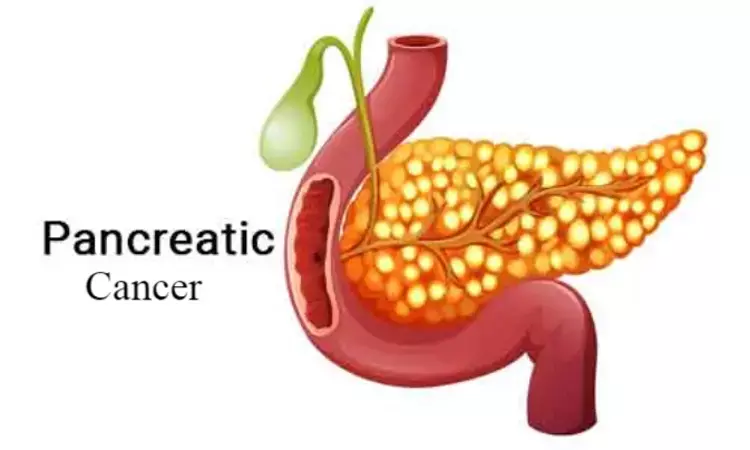- Home
- Medical news & Guidelines
- Anesthesiology
- Cardiology and CTVS
- Critical Care
- Dentistry
- Dermatology
- Diabetes and Endocrinology
- ENT
- Gastroenterology
- Medicine
- Nephrology
- Neurology
- Obstretics-Gynaecology
- Oncology
- Ophthalmology
- Orthopaedics
- Pediatrics-Neonatology
- Psychiatry
- Pulmonology
- Radiology
- Surgery
- Urology
- Laboratory Medicine
- Diet
- Nursing
- Paramedical
- Physiotherapy
- Health news
- Fact Check
- Bone Health Fact Check
- Brain Health Fact Check
- Cancer Related Fact Check
- Child Care Fact Check
- Dental and oral health fact check
- Diabetes and metabolic health fact check
- Diet and Nutrition Fact Check
- Eye and ENT Care Fact Check
- Fitness fact check
- Gut health fact check
- Heart health fact check
- Kidney health fact check
- Medical education fact check
- Men's health fact check
- Respiratory fact check
- Skin and hair care fact check
- Vaccine and Immunization fact check
- Women's health fact check
- AYUSH
- State News
- Andaman and Nicobar Islands
- Andhra Pradesh
- Arunachal Pradesh
- Assam
- Bihar
- Chandigarh
- Chattisgarh
- Dadra and Nagar Haveli
- Daman and Diu
- Delhi
- Goa
- Gujarat
- Haryana
- Himachal Pradesh
- Jammu & Kashmir
- Jharkhand
- Karnataka
- Kerala
- Ladakh
- Lakshadweep
- Madhya Pradesh
- Maharashtra
- Manipur
- Meghalaya
- Mizoram
- Nagaland
- Odisha
- Puducherry
- Punjab
- Rajasthan
- Sikkim
- Tamil Nadu
- Telangana
- Tripura
- Uttar Pradesh
- Uttrakhand
- West Bengal
- Medical Education
- Industry
Sotorasib beneficial for certain pancreatic cancers: Study

USA: Sotorasib has shown clinically meaningful anticancer activity and tolerability in heavily pretreated KRASG12C-mutated advanced pancreatic cancer patients, according to recent findings from the CodeBreaK100 trial. Such patients have limited treatment options and poor prognoses. The findings of the study were presented at the American Society of Clinical Oncology Genitourinary Cancers Symposium.
KRAS mutation is prevalent in 90% of pancreatic ductal adenocarcinomas with p.G12C accounting for 1% to 2% of these mutations. Sotorasib is a small molecule that specifically and irreversibly inhibits KRASG12C. It has been investigated in the CodeBreaK100 trial for patients with KRASG12C-mutated advanced solid tumors.
In the study, John H Strickler, Duke University Medical Center, Durham, NC, and colleagues report the largest dataset evaluating safety and efficacy of a KRASG12C inhibitor in patients with pretreated KRASG12C-mutated pancreatic cancer.
CodeBreaK100 is an international, single-arm, phase I/II study that evaluates the safety and efficacy of sotorasib in patients with KRASG12C-mutated advanced solid tumors with ≥ 1 prior systemic therapy unless intolerant or ineligible for available therapies. Confirmed objective response rate (ORR), assessed by blinded independent central review (BICR) per RECIST 1.1 is the primary efficacy endpoint. Secondary endpoints include disease control rate (DCR), duration of response (DoR), progression-free survival (PFS), and overall survival (OS).
Following were the salient findings of the study:
- As of November 1, 2021, 38 patients with pancreatic cancer (mean age: 65 years, 76.3% male) from the combined phase I/II study received sotorasib 960 mg once daily.
- Stage IV disease was present in 55.3% of patients at diagnosis, and in all patients at enrollment.
- Baseline ECOG scores were 0, 1, or 2 in 31.6%, 57.9%, and 10.5% of patients, respectively.
- Most patients (79%) had ≥ 2 prior lines of therapy (median: 2). The median treatment duration was 4.1 months with a median follow-up of 16.8 months.
- Eight patients had confirmed partial response by BICR with a resulting ORR of 21.1% (95% CI: 9.55%-37.32%).
- DCR was 84.2%. Treatment-related adverse events (TRAEs) of any grade occurred in 16 (42.1%) patients. Grade ≥ 3 TRAEs occurred in 6 patients: diarrhea (2); fatigue (2); abdominal pain, ALT increase, AST increase, pleural effusion, and pulmonary embolism (1 each). No TRAEs were fatal or resulted in sotorasib discontinuation.
"Sotorasib showed clinically meaningful anticancer activity and tolerability in patients with heavily pretreated KRASG12C-mutated advanced pancreatic cancer, who have limited treatment options and poor prognosis," the authors concluded.
Reference:
Dr Kamal Kant Kohli-MBBS, DTCD- a chest specialist with more than 30 years of practice and a flair for writing clinical articles, Dr Kamal Kant Kohli joined Medical Dialogues as a Chief Editor of Medical News. Besides writing articles, as an editor, he proofreads and verifies all the medical content published on Medical Dialogues including those coming from journals, studies,medical conferences,guidelines etc. Email: drkohli@medicaldialogues.in. Contact no. 011-43720751


